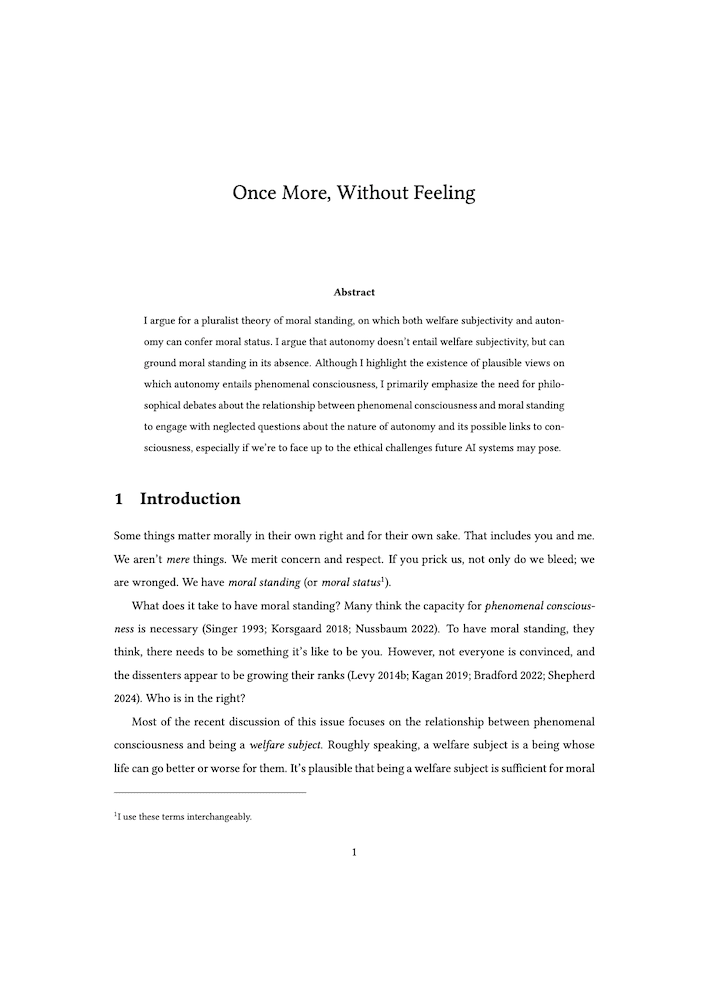Once More, Without Feeling
Andreas Mogensen (Global Priorities Institute, University of Oxford)
GPI Working Paper No. 2-2025
I argue for a pluralist theory of moral standing, on which both welfare subjectivity and autonomy can confer moral status. I argue that autonomy doesn’t entail welfare subjectivity, but can ground moral standing in its absence. Although I highlight the existence of plausible views on which autonomy entails phenomenal consciousness, I primarily emphasize the need for philosophical debates about the relationship between phenomenal consciousness and moral standing to engage with neglected questions about the nature of autonomy and its possible links to consciousness, especially if we’re to face up to the ethical challenges future AI systems may pose.
Other working papers
Time discounting, consistency and special obligations: a defence of Robust Temporalism – Harry R. Lloyd (Yale University)
This paper defends the claim that mere temporal proximity always and without exception strengthens certain moral duties, including the duty to save – call this view Robust Temporalism. Although almost all other moral philosophers dismiss Robust Temporalism out of hand, I argue that it is prima facie intuitively plausible, and that it is analogous to a view about special obligations that many philosophers already accept…
Intergenerational experimentation and catastrophic risk – Fikri Pitsuwan (Center of Economic Research, ETH Zurich)
I study an intergenerational game in which each generation experiments on a risky technology that provides private benefits, but may also cause a temporary catastrophe. I find a folk-theorem-type result on which there is a continuum of equilibria. Compared to the socially optimal level, some equilibria exhibit too much, while others too little, experimentation. The reason is that the payoff externality causes preemptive experimentation, while the informational externality leads to more caution…
How important is the end of humanity? Lay people prioritize extinction prevention but not above all other societal issues. – Matthew Coleman (Northeastern University), Lucius Caviola (Global Priorities Institute, University of Oxford) et al.
Human extinction would mean the deaths of eight billion people and the end of humanity’s achievements, culture, and future potential. On several ethical views, extinction would be a terrible outcome. How do people think about human extinction? And how much do they prioritize preventing extinction over other societal issues? Across six empirical studies (N = 2,541; U.S. and China) we find that people consider extinction prevention a global priority and deserving of greatly increased societal resources. …

